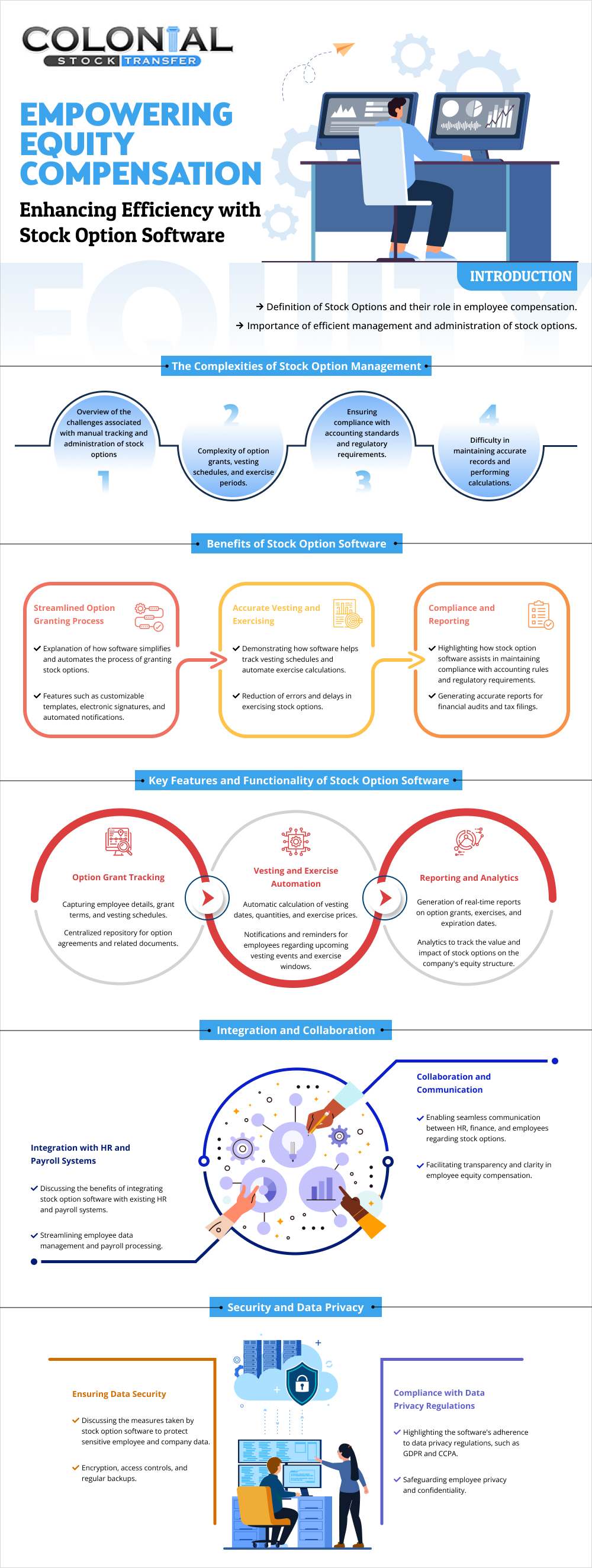
There are numerous ways employees might be compensated for their performance. Even though the salary is the main factor, some companies might give stock awards as well. Many companies provide stock awards to incentivize employees to work harder for the benefit of the company and its shareholders, as these stock awards are worth more money if the company does better.
Two of the most common awards are stock options and restricted stock units. What are the differences between them, and which choice is best for your company?
What Are Stock Options?
A stock option allows an employee to purchase a certain number of shares of the company’s stock in a given time frame. An employee is not required to do so, but they are given the option. A few key terms to remember include:
- The grant date is the date on which the company gives an employee the option to purchase stock.
- The vesting date is the date on which employees gain full ownership of the options with the right to exercise into stock. Many companies require employees to work for five years before vesting occurs, with 20 percent of the options vesting each year.
- The strike price is the price of the stock options at which they can be exercised into stock.
- The expiration date is the date on which the option expires and employees can no longer purchase shares.
Stock options are popular among newer companies that are growing quickly.
| Stock Options | Restricted Stock Units (RSUs) |
| Employees can buy company stock at a fixed price. | Employees receive a grant based on the company’s stock value. |
| Grant date: Date of option given. | Grant date: Date of receiving RSUs. |
| Vesting date: Ownership achieved gradually. | Vesting period: RSUs fully vest after a certain period. |
| Strike price: Price to exercise options. | Holders have a promise of share issuance upon vesting. |
| Expiration date: Option exercise deadline. | RSUs become distributable after the vesting period. |
| Common in fast-growing startups. | More common in established companies. |
What Are Restricted Stock Units?
A restricted stock unit is another type of stock compensation that many companies offer to their employees. This is a grant based on the value of the company’s stock. Typically, these grants have a vesting period. Then, once it expires, the stock units are distributed across the company’s employees. They might even be distributed as cash. Until the restricted stock units are vested, the holder of the units has a promise to issue shares, but they are not necessarily worth anything until they vest. Restricted stock units are more common among companies that are more established.
Which One Should Your Company Offer?
Should your company offer stock options or restricted stock units? There are several differences between the two. They include:
- The exercise price of stock options is typically based on the full market value of the underlying security. RSUs do not have an exercise price.
- Those stock options and RSUs can be vested at any time for a certain milestone.
- Stock options are always issued as shares of company stock. RSUs can be issued as shares of company stock or cash.
- Stock options and RSUs do not come with voting rights or dividends, but companies can decide to issue a cash bonus as a dividend on RSUs.
- RSUs are taxed as ordinary W-2 income. Stock options can be taxed as income as well as long or short-term capital gains.
Offering company stock is a great way to reward employees for their performance. Think carefully about whether restricted stock units or stock options are best for your company.
To launch your RSU or stock option plan, Colonial Stock Transfer can provide stock award tracking services. Please contact us to get started.





